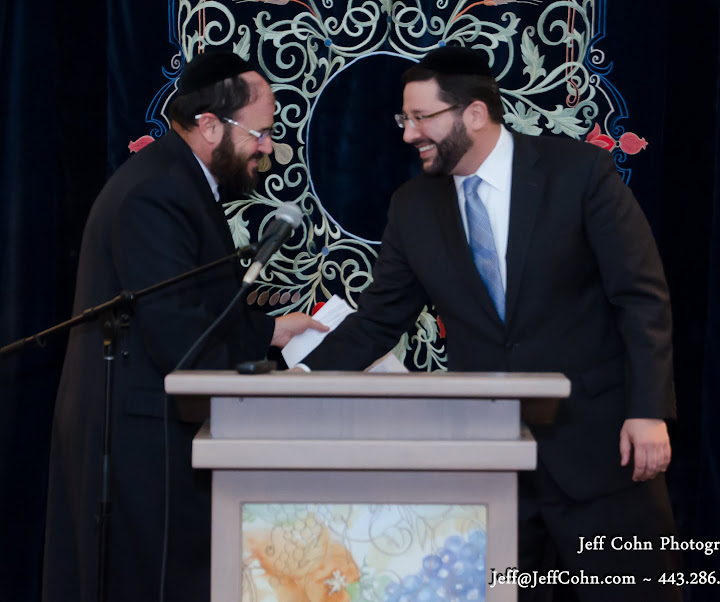Baltimore, MD - Nov. 17, 2015 - After a Sunday filled with family activities and responsibilities, 100 plus parents carved out time on this uncharacteristically mild evening to attend a talk given by Rabbi Yakov Horowitz. Rabbi Horowitz, a trailblazer in education and child abuse prevention is the founder/dean of Yeshiva Darchei Noam of Monsey and founder/director of The Center for Jewish Family Life/Project YES, which conducts child abuse prevention and parenting workshops in Jewish communities around the world.
Relying on his years of extensive work with struggling adolescents, Horowitz talked about a topic with the Baltimore community – one not often addressed publicly and directly; manhood.
From a Torah perspective what qualities define a man? A mentsch? Are they mutually exclusive? The question most wanted answered was ‘How can we position our boys to develop into the Mentschen we hope they become? Undoubtedly, this topic is worthy of a healthy dialogue among parents.
“Being a man is unique,” explained Shmuel Fischler in his welcome. Fischler is a clinical social worker who was involved in developing this program. Fischler quipped “Even if it were true that women are from Venus, men are still from Mars.” He stressed that “While for some it may be out of our box to be here, it will help us reach our universal goal of raising a mentsch and having our daughters marry mentschen.”
Rabbi Binyamin Marwick of Congregation Shomrei Emunah hosted this talk and stressed the priority for developing ‘mentsch’ skills. “The Torah stresses that before all, we should be an Adam, a mentsch. Who better to speak on this topic then Rabbi Horowitz?” He added that Rabbi Horowitz’s years of working with youth who have confided in him have provided an inside look of a young man’s mind. And Rabbi Marwick also encouraged the crowd not to be afraid in enlisting the help of professionals, especially those from community organizations for their help.
In his affable style Rabbi Horowitz deftly addressed serious concerns we have for our boys interwoven with stories that found the crowd laughing. Rabbi Horowitz layered his talk, beginning by painting the context of the adolescent experience.
“Adolescence is a time for making mistakes and growing from them,” he said. He invited parents to appreciate that context and create an environment that fosters such growth. He continued with stressing the relationship between parent and child, father and son. Without having a non-judgmental and compassionate relationship they will not want to be open with parents.
Another point Rabbi Horowitz strongly stressed was congruence. “I urge you,” he pleaded, “to maintain congruence between the messages your children receive at home and what school you send them to.” He felt that the incongruence between the values parents hold versus the values of the school they choose are extremely damaging to the child.
Finally, he delved into the building blocks for being a mentsch, breaking it down into two categories. Behaviors; such as holding doors open and helping the elderly is one. The other, of which he elaborated on, was relational. Model conflict resolution at home between spouses in front of them. Teach empathy by reflecting on viewing experiences through another’s eyes. Show them that being a mentsch in both categories is in their own best interest.
Boy to Mentsch is a federally funded program. For more information please visit boytomentsch.com or call 410.843.0030

















































